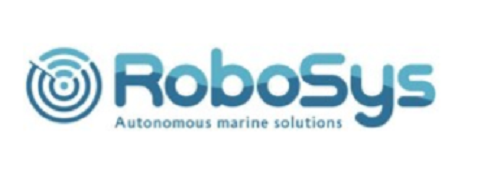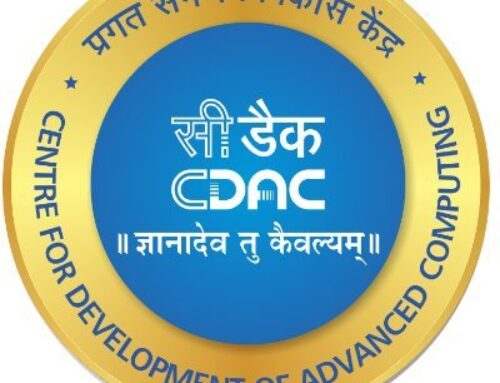The maritime industry has long been a cornerstone of global commerce, enabling the movement of goods, people, and resources across vast distances. However, it also faces persistent challenges—tasks that are dull, dirty, and dangerous (the “three Ds”) remain a reality for seafarers. These operations expose human workers to significant risks, increase operational inefficiencies, and elevate costs. At Robosys Automation, we are at the forefront of a transformative shift, leveraging cutting-edge AI and autonomy to redefine the maritime landscape.
- The Challenges of Maritime Operations
Human errors have historically been a significant factor in maritime accidents, causing safety concerns and financial losses. A stark example is the recent grounding and sinking of the New Zealand Navy ship HMNZS Manawanui in October 2024. Crew mistakes, including failing to disengage the autopilot during a critical maneuver, led to the vessel running aground and ultimately sinking. This incident highlights the pressing need for advanced technological solutions to minimize human error and ensure safer navigation.
Additionally, regulatory frameworks, environmental concerns, and the drive for operational efficiency demand innovative approaches to vessel operations. As the industry moves toward more sustainable and efficient practices, autonomy is emerging as a key enabler of these changes.
- Introducing Voyager AI: Autonomy Redefined
Voyager AI is Robosys Automation’s flagship solution, offering a full-stack autonomous navigation system designed to address these pressing challenges. It operates at IMO Degree 4—the highest level of autonomy defined for maritime vessels—making it a groundbreaking technology in the industry.
Key Features of Voyager AI
-
- Advanced Perception Systems
Voyager AI integrates state-of-the-art sensors and machine learning algorithms to provide a 360-degree understanding of a vessel’s surroundings. These systems detect and classify objects, anticipate potential collisions, and adapt dynamically to changing environments. - Dynamic Route Optimization
Using real-time data, Voyager AI calculates the most efficient routes, taking into account weather conditions, traffic patterns, and other variables. This optimization reduces fuel consumption, lowers emissions, and minimizes delays. - Real-Time Collision Avoidance
Voyager AI employs advanced predictive analytics to detect and respond to potential hazards in real time. By automating critical decision-making processes, it eliminates the risk of human error during complex maneuvers. - Edge Processing Capabilities
One of Voyager AI’s standout features is its ability to process data at the edge. Unlike systems reliant on constant connectivity, Voyager AI ensures reliable decision-making even in remote or connectivity-limited environments.
- Advanced Perception Systems
- Setting New Benchmarks: Certification and Deployment
Robosys Automation has set a precedent in the maritime industry by becoming the first and only company to receive certification from the Indian Register of Shipping for an autonomous vessel. This achievement was demonstrated during the successful conversion of a 26-meter tug into an autonomous tug, showcasing the robustness and reliability of our technology.
The certification underscores the system’s compliance with rigorous safety and operational standards. It also validates our commitment to delivering practical, scalable solutions that address real-world maritime challenges.
- Transforming the Industry: Applications and Impact
Voyager AI is more than just a navigation system—it is a comprehensive solution with far-reaching implications for the maritime industry.
- Enhanced Safety
By automating navigation and other critical functions, Voyager AI significantly reduces the risks associated with human error. This capability is particularly valuable in scenarios where conditions are rapidly changing or where visibility is limited. - Operational Efficiency
Autonomous systems streamline operations, reducing downtime and increasing productivity. The ability to optimize routes and processes results in cost savings for operators while improving overall fleet performance. - Sustainability
Voyager AI contributes to environmental sustainability by enabling more efficient fuel usage and reducing emissions. Its real-time optimization capabilities align with global efforts to reduce the carbon footprint of maritime operations. - Scalable Applications
From small vessels like tugs to large container ships, Voyager AI is designed to be scalable and adaptable. Its modular architecture allows operators to tailor the system to specific needs, ensuring flexibility and future-proofing.
- Pioneering a New Era of Maritime Autonomy
The adoption of autonomous systems like Voyager AI represents a paradigm shift for the maritime industry. As regulations evolve and stakeholders recognize the benefits of autonomy, the demand for robust, certified solutions will only grow.
Robosys Automation is proud to be at the forefront of this transformation. Our work is guided by a vision of a safer, smarter, and more sustainable maritime sector. By addressing long-standing challenges and unlocking new opportunities, we are paving the way for a future where autonomy is not just an advantage but a necessity.
- Conclusion
Voyager AI exemplifies the potential of advanced technology to reshape an industry. From enhancing safety and efficiency to driving sustainability, its impact is already being felt. With groundbreaking features like IMO Degree 4 autonomy and edge processing, combined with the distinction of being the first certified autonomous vessel in India, Voyager AI is more than a solution—it is the future of maritime autonomy.
As we continue to innovate and expand our reach, Robosys Automation remains committed to delivering technologies that redefine what’s possible in the maritime world. Together, we are navigating toward a new era of excellence.







